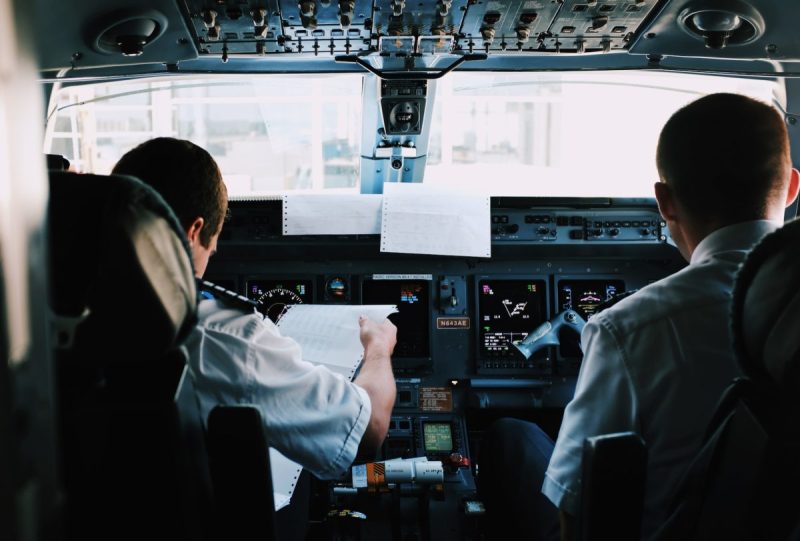If you’ve ever been on a plane headed home after a long travel day, you can likely practically feel the anticipation to finally be home and asleep in your own bed. One time, I was in that situation, but the pilot came on the intercom mid-flight: Unexpected, severe weather had made it unsafe to land at our destination airport. We were being diverted to a city hours away. That feeling of sinking disappointment mixed with anxiety about what happens now is something many travelers unfortunately experience.
Flying is usually pretty straightforward, but sometimes things go sideways, and a diverted flight is one of the more frustrating situations. Whether it’s because of weather like I experienced, sudden mechanical issues, or something else entirely, a diverted plane can throw a major wrench in your travel plans. So, how do you handle it when you’re stuck in this situation? Here are some tips, along with an explanation of why planes might get diverted in the first place.
1. Stay calm and be patient

The first thing you need to do when your plane is diverted is stay calm. It’s easy to get frustrated, but remember: your safety is the top priority for the crew and airline. Diversions happen for a reason, and it’s usually to make sure everyone is safe. Take a deep breath, relax, and try to stay patient as things unfold.
2. Listen to the announcements

Once you hear that your plane is being diverted, keep your ears open for updates. Flight attendants and the pilot will keep you informed about the situation, including where you’re landing and what the next steps are. It’s important to pay attention to these announcements because they’ll guide you through the entire process, from when you land to what happens next.
3. Check your connection

If you’re connecting to another flight, a diversion can complicate things. You may miss your connecting flight or find yourself stuck at a new airport. If that happens, don’t panic. Airlines are used to dealing with these situations and will help you get rebooked. Check in with a flight attendant to see what options are available, or once you’ve landed, head straight to the airline’s customer service desk for the next steps.
4. Stay in touch with your airline

If your plane has been diverted, make sure you stay in touch with the airline. Once you’re safely on the ground, speak with an airline representative to see what accommodations or alternate flights they can offer. Depending on the situation, you may be entitled to things like food vouchers, hotel accommodations, or a new flight. Don’t be afraid to ask about your options.
5. Have a backup plan for accommodations

Sometimes, a diverted plane means you’re stuck at an airport overnight. If that happens, it’s a good idea to have a backup plan in place. Knowing about nearby hotels or airport lounges where you can relax for a few hours will help ease the stress. If the airline doesn’t cover accommodation, you’ll be prepared to take care of things yourself.
6. Understand why planes are diverted

A diverted flight is never fun, but understanding why it happens can help make the situation less frustrating. According to Just Aviation, some common reasons for a diverted plane are:
- Weather. Storms, heavy rain, or fog can make it unsafe to land at the scheduled destination.
- Mechanical issues. If the plane experiences a technical problem, it might need to land at a nearby airport for repairs.
- Medical emergencies. If a passenger gets sick, the plane may need to land sooner than expected.
- Air traffic control. Sometimes, air traffic congestion can force a diversion to a different airport.
Diversions are almost always related to safety, and while they may be inconvenient, they’re ultimately in place to keep you safe.
7. Stay informed through airline apps

Most airlines have mobile apps that allow you to get real-time updates on your flight status. These apps can give you updates on the new flight times and gate changes, and they can even let you know if the airline has rebooked you. Keeping the app handy during a diversion will help you stay on top of any changes and give you peace of mind as you handle the situation.
8. Be ready for unexpected delays

Sometimes, a diverted flight means long delays, and you could end up waiting for hours or even overnight. In these cases, it’s a good idea to be prepared. Pack some snacks, entertainment, and anything else that might help you pass the time. A portable charger for your devices can be a lifesaver, especially if you’re stuck in an airport with limited charging options.
9. Document everything

It can be frustrating when a flight gets diverted, but keeping track of everything will help if you need to file a claim or get compensation later. Write down the times of any changes to your flight, any assistance you received from the airline (like meal or hotel vouchers), and anything else that’s relevant. This information will make it easier to resolve any issues down the road.
10. Know your rights as a passenger

When your plane is diverted, you may be entitled to compensation, depending on the airline, your location, and the cause of the diversion. In Europe, for example, there are strict regulations that require airlines to offer compensation for significant delays and diversions, according to the Federal Register. In the U.S., passenger rights vary, but airlines usually offer assistance in situations like this. Make sure you know what you’re entitled to and ask the airline if they can help.




